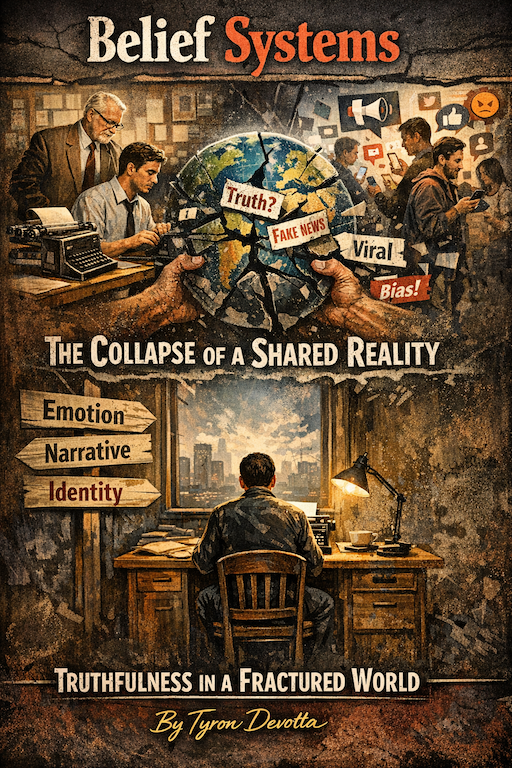by Tyron Devotta
In the future, artificial intelligence may redefine how we evaluate government policies and political promises. Although this concept may still seem like science fiction today, it is not hard to imagine a Sri Lankan election where citizens analyse party manifestos not via traditional rhetoric but through AI-powered assessments. With the ability to weigh feasibility, viability, and risk based on extensive datasets, AI would be able to fundamentally reshape not just our politics but also the way we view governance.
A New Era of Political Accountability
Today, politicians can make sweeping promises with little accountability. But in a future where AI tools are available to the public, election manifestos could be rigorously assessed against data. Voters would be able to upload policy proposals into AI models that will evaluate them based on economic indicators, political risks, global trends, supply chains, employment projections, climate predictions, debt servicing and more. This shift could reveal the realistic potential—or lack thereof—behind each promise.
Imagine an election season where each party’s platform is immediately subject to AI-driven analysis. Instead of relying on party loyalty or charisma, voters would see policy viability laid out with facts. For example, a proposal promising rapid economic growth could be challenged by AI pointing to current GDP growth trends, export challenges, and global market demands. An ambitious climate change pledge might be evaluated against available data on resource constraints and global benchmarks.
In Sri Lanka, where the gap between promise and action often frustrates citizens, this tool could increase accountability, forcing parties to present realistic, achievable goals instead of grandiose visions unlikely to materialise.
The Impact on Political Rhetoric
With AI as a tool for scrutinising manifestos, political rhetoric itself would likely shift. The traditional allure of fiery speeches, emotional appeals, and faith-based promises might lose their hold if AI models can show which policies are feasible and which are unsubstantiated. In this environment, politicians may need to focus on practical, data-backed proposals rather than populist promises or vague visions.
However, while such an approach could enhance clarity, it might also create an overly clinical political atmosphere. Faith, cultural values, and human aspirations—often deeply embedded in Sri Lankan society—may struggle to find space in a system increasingly oriented to operate around measurable outcomes. The focus on objectivity and data could crowd out considerations that, while hard to quantify, are still significant for a population with diverse religious and cultural beliefs.
Objectivity and the Limits of AI
An AI-driven political landscape raises important questions about objectivity. While AI is often seen as neutral, the reality is more complex. Any AI model reflects the data it’s trained on and the assumptions of its designers. If Sri Lankan voters begin to depend on non-human analyses for political decisions, they must understand that even the most advanced AI is not free from bias. For instance, AI assessments might favour policies that align with global economic models, potentially overlooking solutions tailored to Sri Lanka’s unique cultural or social needs.
Moreover, AI’s focus on objective, measurable factors could devalue intangible elements, such as a sense of national identity, historical relationships, or the emotional impact of certain policies on communities. The art of politics lies in balancing hard data with these nuanced, often subjective aspects. A world where voters rely solely on data to assess policies risks marginalising these softer, but vital, aspects of governance.
A Clinical Political Future?
If AI-driven analysis becomes central to Sri Lankan elections, the nation may experience a more clinical approach to governance. Election outcomes would be shaped less by ideology or human vision and more by data-driven predictions. While this might seem beneficial for transparency and accountability, it may also erode the human elements that define Sri Lankan society, like its warmth, empathy, and communal spirit.
The Path Forward: Integrating AI with Human Wisdom
Sri Lanka stands at a crossroads where technology and tradition intersect. While AI offers powerful tools to enhance political accountability, it cannot replace human insight, values, and emotional connections that bind societies together. For a nation rich in cultural diversity and history, the challenge will be to integrate AI without allowing it to dominate political life completely.
To achieve this balance, Sri Lanka’s future could include frameworks that blend AI analysis with human-centred policymaking. Policies would still be assessed by AI for feasibility, but human representatives could weigh cultural values, social impacts, and collective aspirations alongside data. This hybrid approach could allow Sri Lanka to harness the best of both worlds: the clarity of data-driven analysis and the richness of human judgement.
Conclusion
AI holds the potential to reshape Sri Lankan politics by introducing unprecedented levels of accountability and transparency. But as we look toward a future where AI tools assess government policies and election promises, we must also consider what might be lost. As Sri Lankans, we must remain vigilant to ensure that the clinical efficiency of AI does not erode the human values that give our society its heart and soul. The challenge is not simply adopting technology but integrating it in a way that honours both progress and tradition.













